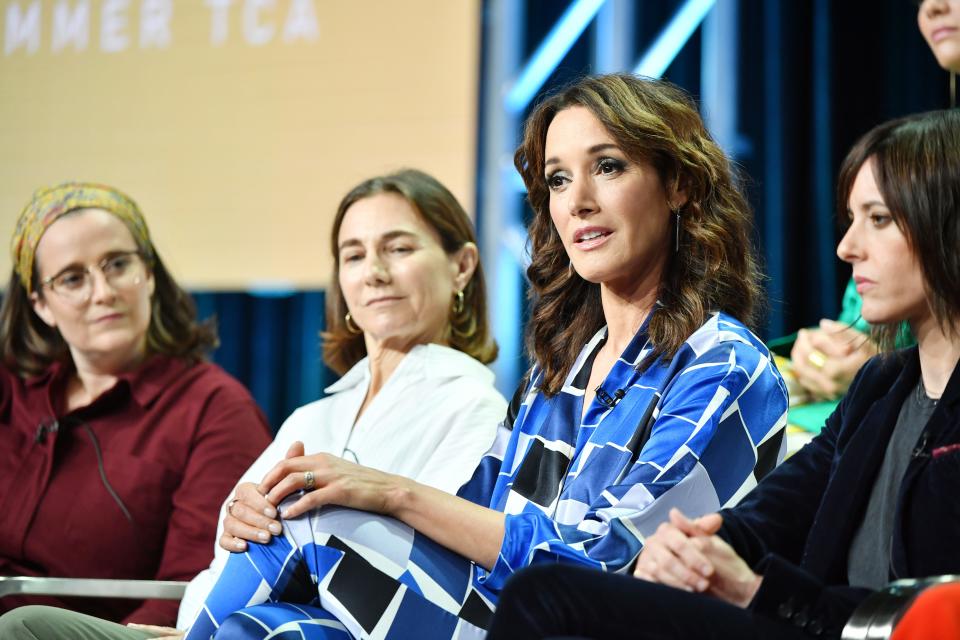How 'The L Word' revival looks in 2019: Trans lesbians, dating apps and post-Trump reality
BEVERLY HILLS, Calif. – How we talk about LGBTQ issues had changed a lot in the last decade.
It's been more than 10 years since "The L Word" signed off on Showtime after six seasons of groundbreaking drama about a group of lesbian friends living in Los Angeles. Now that the series is returning for a revival, "The L Word: Generation Q" due Dec. 8 (10 EDT/PDT), the series had to adapt to fit into a wildly different queer culture.
"What I think what’s interesting about this show is that we’ve extended the discussion of sexuality and gender identity," Jennifer Beals, who's reprising her role as Bette Porter in addition to serving as an executive producer. "When we started the show, 'non-binary' was a mathematical term ... now we’re able to talk about (it)."

"Generation Q," which mixes returning characters – including Alice (Leisha Hailey) and Shane (Katherine Moennig) – with a newer, younger cast, looks at the generational divide within queer culture, including young trans characters, lesbians who discriminate against trans people and the nature of dating and relationship in 2019 versus 2004, when it began.
"We have had long conversations about (lesbians and trans people) and we are very plugged into the conversations that are coming out of the divide," says executive producer Marja-Lewis Ryan. "I strongly stand on the side of inclusivity ... we don’t have enough teammates to play a full game if we’re not all on the team. We are (also) exploring trans lesbians."
The updated series includes trans actor Leo Sheng, who plays a trans character, although trans actors also play cisgender characters.
Ryan is also aware that in the 10 years since "L" went off the air, retrospective criticism has followed it in the queer community.
"I am from the generation that critiqued the show. I’m 34," she says. "I am right there with the things that people are saying. ... All we can do is do better. The time-specific decisions of the original are not the decisions I’m making right now. ... We’re making something that is of now, and for now."
Ryan, Beals and creator Ilene Chaiken all felt an urgency to revive the series in the current political climate.
"I think this (presidential) administration has given people permission to say really hateful things, and they are perpetrating hateful things," says Beals. "We haven’t reached any kind of state of equality. The power of storytelling can help that issue."
Added Chaiken: "We all felt there was a reason to bring the show back and it would be exciting and meaningful and I was waiting for the right time. But (the 2016 election) really provoked me to make the move and approach Showtime."
Ryan hopes the new series is an important touchstone for queer youth as it was for many during its original run.
"Part of what this show was for me was an aspirational queer narrative," she says. "Young adults need someone to look up to."
This article originally appeared on USA TODAY: 'The L Word Generation Q': Updating for 2019 with trans actors, issues

